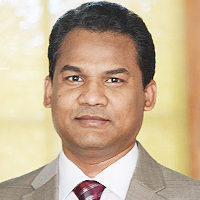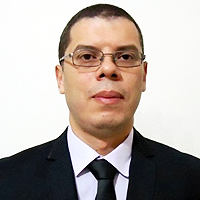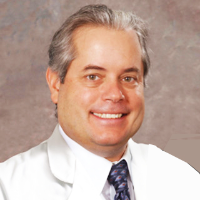Abstract
Review Article
Creatine Supplementation and Akt/mTOR Pathway: Unraveling the Connection for Optimal Muscle Performance
Mateus O Leite, Franz W Knifis and Marco Machado*
Published: 14 June, 2023 | Volume 8 - Issue 2 | Pages: 024-029
This review paper investigates the relationship between creatine supplementation and the Akt/mTOR pathway, focusing on their impact on muscle performance. The Akt/mTOR pathway is a crucial signaling pathway that regulates muscle protein synthesis and hypertrophy in response to growth factors, nutrients, and mechanical stimuli. Recent evidence suggests that creatine supplementation can influence anabolic signaling pathways, including the phosphorylation of p70S6K, a downstream target of mTOR, leading to enhanced activation of the Akt/mTOR pathway. Additionally, creatine supplementation has been shown to increase intramuscular creatine and phosphocreatine levels, improving ATP availability during exercise and enhancing high-intensity muscle contractions. Understanding the complex regulatory mechanisms of the Akt/mTOR pathway is vital for optimizing muscle performance, as dysregulated signaling can hinder muscle protein synthesis and hypertrophic responses. This review highlights the potential of creatine supplementation to modulate the Akt/mTOR pathway, offering insights into its mechanisms and implications for muscle performance enhancement. By unraveling this connection, researchers and practitioners can develop targeted strategies to maximize muscle performance and promote adaptive responses in various exercise and athletic contexts.
Read Full Article HTML DOI: 10.29328/journal.jsmt.1001068 Cite this Article Read Full Article PDF
Keywords:
Creatine supplementation; Akt/mTOR pathway; Muscle performance; Muscle protein synthesis; Hypertrophy
References
- Atherton PJ, Smith K. Muscle protein synthesis in response to nutrition and exercise. J Physiol. 2012 Mar 1;590(5):1049-57. doi: 10.1113/jphysiol.2011.225003. Epub 2012 Jan 30. PMID: 22289911; PMCID: PMC3381813.
- Thompson PD, Arena R, Riebe D, Pescatello LS; American College of Sports Medicine. ACSM's new preparticipation health screening recommendations from ACSM's guidelines for exercise testing and prescription, ninth edition. Curr Sports Med Rep. 2013 Jul-Aug;12(4):215-7. doi: 10.1249/JSR.0b013e31829a68cf. PMID: 23851406.
- García-Hermoso A, Ramírez-Campillo R, Izquierdo M. Is Muscular Fitness Associated with Future Health Benefits in Children and Adolescents? A Systematic Review and Meta-Analysis of Longitudinal Studies. Sports Med. 2019 Jul;49(7):1079-1094. doi: 10.1007/s40279-019-01098-6. PMID: 30953308.
- Bodine SC, Stitt TN, Gonzalez M, Kline WO, Stover GL, Bauerlein R, Zlotchenko E, Scrimgeour A, Lawrence JC, Glass DJ, Yancopoulos GD. Akt/mTOR pathway is a crucial regulator of skeletal muscle hypertrophy and can prevent muscle atrophy in vivo. Nat Cell Biol. 2001 Nov;3(11):1014-9. doi: 10.1038/ncb1101-1014. PMID: 11715023.
- Saxton RA, Sabatini DM. mTOR Signaling in Growth, Metabolism, and Disease. Cell. 2017 Apr 6;169(2):361-371. doi: 10.1016/j.cell.2017.03.035. Erratum for: Cell. 2017 Mar 9;168(6):960-976. PMID: 28388417.
- Arantes VHF, da Silva DP, de Alvarenga RL. Skeletal muscle hypertrophy: molecular and applied aspects of exercise physiology. Ger J Exerc Sport Res. 2020; 50: 195–207. doi: 10.1007/s12662-020-00652-z
- Forbes SC, Candow DG, Little JP, Magnus C, Chilibeck PD. Creatine monohydrate supplementation does not augment fitness, performance, or body composition adaptations in response to four weeks of high-intensity interval training in young females. Int J Sport Nutr Exerc Metab. 2021; 31(1): 82-90. doi:10.1123/ijsnem.2020-0187
- Galvan E, Walker DK, Simbo SY. Acute and chronic safety and efficacy of dose-dependent creatine nitrate supplementation and exercise performance. J Int Soc Sports Nutr. 2020; 17(1): 9 doi:10.1186/s12970-020-0348-1
- Rommel C, Bodine SC, Clarke BA, Rossman R, Nunez L, Stitt TN, Yancopoulos GD, Glass DJ. Mediation of IGF-1-induced skeletal myotube hypertrophy by PI(3)K/Akt/mTOR and PI(3)K/Akt/GSK3 pathways. Nat Cell Biol. 2001 Nov;3(11):1009-13. doi: 10.1038/ncb1101-1009. PMID: 11715022.
- Laplante M, Sabatini DM. Regulation of mTORC1 and its impact on gene expression at a glance. J Cell Sci. 2013 Apr 15;126(Pt 8):1713-9. doi: 10.1242/jcs.125773. Epub 2013 May 2. PMID: 23641065; PMCID: PMC3678406.
- Laplante M, Sabatini DM. mTOR signaling in growth control and disease. Cell. 2012 Apr 13;149(2):274-93. doi: 10.1016/j.cell.2012.03.017. PMID: 22500797; PMCID: PMC3331679.
- Hornberger TA, Sukhija KB, Chien S. Regulation of mTOR by mechanically induced signaling events in skeletal muscle. Cell Cycle. 2006 Jul;5(13):1391-6. doi: 10.4161/cc.5.13.2921. Epub 2006 Jul 1. PMID: 16855395.
- Drummond MJ, Fry CS, Glynn EL, Dreyer HC, Dhanani S, Timmerman KL, Volpi E, Rasmussen BB. Rapamycin administration in humans blocks the contraction-induced increase in skeletal muscle protein synthesis. J Physiol. 2009 Apr 1;587(Pt 7):1535-46. doi: 10.1113/jphysiol.2008.163816. Epub 2009 Feb 2. PMID: 19188252; PMCID: PMC2678224.
- Leite M, Machado M. Signaling for Muscular Hypertrophy May Exist with or without Activation of Satellite Cell. Eur Academic Res. 2019; 7(9): 4771-4789.
- Rasmussen BB, Phillips SM. Contractile and nutritional regulation of human muscle growth. Exerc Sport Sci Rev. 2003 Jul;31(3):127-31. doi: 10.1097/00003677-200307000-00005. PMID: 12882478.
- Deldicque L, Atherton P, Patel R, Theisen D, Nielens H, Rennie MJ, Francaux M. Effects of resistance exercise with and without creatine supplementation on gene expression and cell signaling in human skeletal muscle. J Appl Physiol (1985). 2008 Feb;104(2):371-8. doi: 10.1152/japplphysiol.00873.2007. Epub 2007 Nov 29. PMID: 18048590.
- Drummond MJ, Dreyer HC, Pennings B, Fry CS, Dhanani S, Dillon EL, Sheffield-Moore M, Volpi E, Rasmussen BB. Skeletal muscle protein anabolic response to resistance exercise and essential amino acids is delayed with aging. J Appl Physiol (1985). 2008 May;104(5):1452-61. doi: 10.1152/japplphysiol.00021.2008. Epub 2008 Mar 6. PMID: 18323467; PMCID: PMC2715298.
- Leite MO, Silva TMA, Machado M. IGF-1-PI3K-Akt-mTOR and Myostatin-SMAD3 Pathways Signaling for Muscle Hypertophy. J Endocrinol Thyroid Res. 2021; 6(3): 555689. DOI: 10.19080/JETR.2021.06.555689
- Ruvinsky I, Meyuhas O. Ribosomal protein S6 phosphorylation: from protein synthesis to cell size. Trends Biochem Sci. 2006 Jun;31(6):342-8. doi: 10.1016/j.tibs.2006.04.003. Epub 2006 May 6. PMID: 16679021.
- Philp A, Hamilton DL, Baar K. Signals mediating skeletal muscle remodeling by resistance exercise: PI3-kinase independent activation of mTORC1. Journal of Applied Physiology. 2015; 118(3): 263-267.
- Figueiredo VC, Markworth JF, Cameron-Smith D, Mackey AL. Divergent response of clusterin and HSP72 in human skeletal muscle to exercise and heat stress. Scandinavian Journal of Medicine & Science in Sports. 2018; 28(3): 990-998.
- Hornberger TA. Mechanotransduction and the regulation of mTORC1 signaling in skeletal muscle. Int J Biochem Cell Biol. 2011 Sep;43(9):1267-76. doi: 10.1016/j.biocel.2011.05.007. Epub 2011 May 19. PMID: 21621634; PMCID: PMC3146557.
- Kubica N, Bolster DR, Farrell PA, Kimball SR. Resistance exercise increases muscle protein synthesis and translation of eukaryotic initiation factor 2Bε mRNA in a mammalian target of a rapamycin-dependent manner. Journal of Applied Physiology. 2017; 122(6): 1398-1407.
- Zhang LN, Zhou X, Michelli AM, Bain JR, Gowda GA, Raftery D, Stevens RD. Effects of high-intensity interval training on skeletal muscle mitochondrial content and fuel metabolism in middle-aged men. Diabetes. 2017; 66(1): 212-219.
- Yang Y, Creer A, Jemiolo B, Trappe S. Time course of myogenic and metabolic gene expression in response to acute exercise in human skeletal muscle. Journal of Applied Physiology. 2017; 122(4): 1065-1073.
- Buford TW, Kreider RB, Stout JR, Greenwood M, Campbell B, Spano M, Ziegenfuss T, Lopez H, Landis J, Antonio J. International Society of Sports Nutrition position stand: creatine supplementation and exercise. J Int Soc Sports Nutr. 2007 Aug 30;4:6. doi: 10.1186/1550-2783-4-6. PMID: 17908288; PMCID: PMC2048496.
- Kreider RB, Kalman DS, Antonio J, Ziegenfuss TN, Wildman R, Collins R, Candow DG, Kleiner SM, Almada AL, Lopez HL. International Society of Sports Nutrition position stand: safety and efficacy of creatine supplementation in exercise, sport, and medicine. J Int Soc Sports Nutr. 2017 Jun 13;14:18. doi: 10.1186/s12970-017-0173-z. PMID: 28615996; PMCID: PMC5469049.
- Rawson ES, Venezia AC, Parsons BD. The effects of creatine supplementation on muscle recovery and performance: a systematic review. Journal of the International Society of Sports Nutrition. 2018; 15(1): 1-16.
- Candow DG, Forbes SC, Chilibeck PD. Creatine supplementation and aging musculoskeletal health. Endocrine. 2019; 65(2): 190-204.
- Wokke BH, van den Engel-Hoek L, Zijdeman R. Creatine for treating muscle disorders. Cochrane Database of Systematic Reviews. 2018; (3): CD004760.
- Cooper R, Naclerio F, Allgrove J, Jimenez A. Creatine supplementation with specific view to exercise/sports performance: an update. J Int Soc Sports Nutr. 2012 Jul 20;9(1):33. doi: 10.1186/1550-2783-9-33. PMID: 22817979; PMCID: PMC3407788.
- Stec MJ, Greenwald SE, Speakman JR. Creatine supplementation induces muscle hypertrophy in response to mechanical overload. Am J Physiol Regul Integr Comp Physiol. 2009; 296(4): R1078-R1087.
- Forbes SC, Candow DG, Neto JHF, Kennedy MD, Forbes JL, Machado M, Bustillo E, Gomez-Lopez J, Zapata A, Antonio J. Creatine supplementation and endurance performance: surges and sprints to win the race. J Int Soc Sports Nutr. 2023 Dec;20(1):2204071. doi: 10.1080/15502783.2023.2204071. PMID: 37096381; PMCID: PMC10132248.
- Wutzke KD, Lorenz H. The effect of creatine supplementation on muscle ATP concentration and physical performance. Sports Medicine. 2004; 34(14): 951-967.
- Terrillion KA, Kolkhorst FW, Dolgener FA. Creatine supplementation: Effects on urinary excretion and anaerobic performance. Journal of Applied Physiology. 2002; 93(1): 71-78.
- Burke DG, Chilibeck PD, Parise G, Candow DG, Mahoney D, Tarnopolsky M. Effect of creatine and weight training on muscle creatine and performance in vegetarians. Med Sci Sports Exerc. 2003 Nov;35(11):1946-55. doi: 10.1249/01.MSS.0000093614.17517.79. PMID: 14600563.
- Hornberger TA Jr, Farrar RP. Physiological hypertrophy of the FHL muscle following 8 weeks of progressive resistance exercise in the rat. Can J Appl Physiol. 2004 Feb;29(1):16-31. doi: 10.1139/h04-002. PMID: 15001801.
- Parise G, Mihic S, MacLennan D, Yarasheski KE, Tarnopolsky MA. Effects of acute creatine monohydrate supplementation on leucine kinetics and mixed-muscle protein synthesis. J Appl Physiol (1985). 2001 Sep;91(3):1041-7. doi: 10.1152/jappl.2001.91.3.1041. PMID: 11509496.
- Almeida D, Colombini A, Machado M. Creatine supplementation improves performance, but is it safe? Double-blind placebo-controlled study. J Sports Med Phys Fitness. 2020 Jul;60(7):1034-1039. doi: 10.23736/S0022-4707.20.10437-7. PMID: 32597619.
- Almeida D, Pereira R, Borges EQ. Creatine Supplementation Improves Physical Performance, Without Negative Effects on Health Markers, in Young Weightlifters. Journal of Science in Sport and Exercise. 2022; 4: 255–265. doi: 10.1007/s42978-021-00147-9
- Machado M, Guimarães P, Forbes SC. Safety of creatine supplementation: where are we now? Gazz Med Ital - Arch Sci Med. 2022. 181: 000-000. doi: 10.23736/S0393- 3660.22.04788-X
- Bassit RA, Pinheiro CH, Vitzel KF, Sproesser AJ, Silveira LR, Curi R. Effect of short-term creatine supplementation on markers of skeletal muscle damage after strenuous contractile activity. Eur J Appl Physiol. 2010 Mar;108(5):945-55. doi: 10.1007/s00421-009-1305-1. Epub 2009 Dec 3. PMID: 19956970.
- Mattos D, Santos CGM, Forbes SC. Individual Responses to Creatine Supplementation on Muscular Power is Modulated by Gene Polymorphisms in Military Recruits. Journal of Science in Sport and Exercise. 2023; 5: 70-76. doi: 10.1007/s42978-022-00165-1
Similar Articles
-
Creatine Supplementation and Akt/mTOR Pathway: Unraveling the Connection for Optimal Muscle PerformanceMateus O Leite, Franz W Knifis, Marco Machado*. Creatine Supplementation and Akt/mTOR Pathway: Unraveling the Connection for Optimal Muscle Performance. . 2023 doi: 10.29328/journal.jsmt.1001068; 8: 024-029
Recently Viewed
-
Environmental Factors Affecting the Concentration of DNA in Blood and Saliva Stains: A ReviewDivya Khorwal*, GK Mathur, Umema Ahmed, SS Daga. Environmental Factors Affecting the Concentration of DNA in Blood and Saliva Stains: A Review. J Forensic Sci Res. 2024: doi: 10.29328/journal.jfsr.1001057; 8: 009-015
-
Markov Chains of Molecular Processes of Biochemical MaterialsOrchidea Maria Lecian*. Markov Chains of Molecular Processes of Biochemical Materials. Int J Phys Res Appl. 2024: doi: 10.29328/journal.ijpra.1001076; 7: 001-005
-
Generation of Curved Spacetime in Quantum FieldSarfraj Khan*. Generation of Curved Spacetime in Quantum Field. Int J Phys Res Appl. 2024: doi: 10.29328/journal.ijpra.1001077; 7: 006-009
-
Optimizing Milk Safety: Applying Nuclear Techniques in X-ray Fluorescence Spectroscopy for Heavy Metal Quantification in Powdered Milk Consumed in SenegalPapa Macoumba Faye*, Djicknack Dione, Oumar Ndiaye, Moussa Hamady SY, Nogaye Ndiaye, Alassane Traore, Ababacar Sadikhe Ndao. Optimizing Milk Safety: Applying Nuclear Techniques in X-ray Fluorescence Spectroscopy for Heavy Metal Quantification in Powdered Milk Consumed in Senegal. Int J Phys Res Appl. 2024: doi: 10.29328/journal.ijpra.1001078; 7: 010-015
-
Thermoelectric Materials Based on Lead Telluride and Prospects for their Practical ApplicationYuriy Pavlovskyy*, Nadiya Pavlovska. Thermoelectric Materials Based on Lead Telluride and Prospects for their Practical Application. Int J Phys Res Appl. 2024: doi: 10.29328/journal.ijpra.1001079; 7: 016-018
Most Viewed
-
Evaluation of Biostimulants Based on Recovered Protein Hydrolysates from Animal By-products as Plant Growth EnhancersH Pérez-Aguilar*, M Lacruz-Asaro, F Arán-Ais. Evaluation of Biostimulants Based on Recovered Protein Hydrolysates from Animal By-products as Plant Growth Enhancers. J Plant Sci Phytopathol. 2023 doi: 10.29328/journal.jpsp.1001104; 7: 042-047
-
Sinonasal Myxoma Extending into the Orbit in a 4-Year Old: A Case PresentationJulian A Purrinos*, Ramzi Younis. Sinonasal Myxoma Extending into the Orbit in a 4-Year Old: A Case Presentation. Arch Case Rep. 2024 doi: 10.29328/journal.acr.1001099; 8: 075-077
-
Feasibility study of magnetic sensing for detecting single-neuron action potentialsDenis Tonini,Kai Wu,Renata Saha,Jian-Ping Wang*. Feasibility study of magnetic sensing for detecting single-neuron action potentials. Ann Biomed Sci Eng. 2022 doi: 10.29328/journal.abse.1001018; 6: 019-029
-
Pediatric Dysgerminoma: Unveiling a Rare Ovarian TumorFaten Limaiem*, Khalil Saffar, Ahmed Halouani. Pediatric Dysgerminoma: Unveiling a Rare Ovarian Tumor. Arch Case Rep. 2024 doi: 10.29328/journal.acr.1001087; 8: 010-013
-
Physical activity can change the physiological and psychological circumstances during COVID-19 pandemic: A narrative reviewKhashayar Maroufi*. Physical activity can change the physiological and psychological circumstances during COVID-19 pandemic: A narrative review. J Sports Med Ther. 2021 doi: 10.29328/journal.jsmt.1001051; 6: 001-007

HSPI: We're glad you're here. Please click "create a new Query" if you are a new visitor to our website and need further information from us.
If you are already a member of our network and need to keep track of any developments regarding a question you have already submitted, click "take me to my Query."



















































































































































